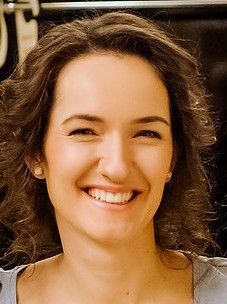The Specialized Cardiac and Vascular IGNITE award supports innovative early-phase, proof-of-concept investigations on sex- and gender-differences in cardiac and vascular diseases, including studies on disease mechanisms, biomarkers, diagnostics and therapeutics.
The Cardiac and Vascular IGNITE Award is funded by the Scott Schoen and Nancy Adams Research Fund in Women’s Vascular Disease.
The Gayle Brinkenhoff IGNITE Award for Cancer Research supports innovative early-phase, proof-of-concept investigations related to breast cancer.
The Gayle Brinkenhoff Award for Cancer Research is made possible through funding from the Philanthropy Division of RevitaLash Cosmetics.
One $50,000 award will be distributed for each of these awards. The award total is inclusive of indirect costs. Applicants must have an HMS appointment and BWH listed as the primary affiliation.
The application cycle for both of these awards is now closed. Please check back later for the next cycle’s dates.
To access the full RFP and other application materials, please visit our funding opportunities page.

Shashi Kant, PhD, FAHA
2024 Specialized Cardiac & Vascular IGNITE Awardee
Associate Scientist, Division of Cardiovascular Medicine
“Sex-differential role of Sortilin1 in the regulation of endothelium-dependent vascular homeostasis”
Cardiovascular disease progression differs between men and women, with women at higher risk of developing specific atherosclerotic vascular diseases compared to men. Endothelial cells play a crucial role in the pathophysiology of cardiovascular diseases, with additional evidence of a strong association between variants of the Sortilin1 gene and CVD risk. However, the contribution of molecular factors involved in endothelial function in these sex differences remains underdeveloped. The current study will explore how the Sortilin1 gene affects endothelial cell function under varying sex hormone exposures, leading to novel sex-specific treatment targets for cardiovascular disease.

Adita Hazra, PhD, MPH
2024 Gayle Brinkenhoff IGNITE Awardee
Associate Genomic Epidemiologist, Division of Preventive Medicine
“Leveraging artificial intelligence to improve shared decision-making among women of color diagnosed with non-invasive ductal carcinoma in situ”
Biomarkers related to the diverse cell types and genes within cancerous tumors have been associated with increased recurrence of ductal carcinoma in situ (DCIS). These biomarkers remain understudied in women of color, who experience higher rates of breast cancer mortality but are underrepresented in precision medicine. In partnership with AfroPink, a non-profit dedicated to early detection of breast cancer within the African-American community, this study will utilize artificial intelligence (AI) to unravel molecular mechanisms to identify DCIS and develop a novel algorithm for predicting outcomes. With a commitment for community-based participatory research, successful completion of project aims will advance inclusivity in shared decision-making for DCIS treatment and vaccine options.


Farhad Nezami, PhD, Iman Aganj, PhD
2023 Connors BWH-MGB Collaborative Cardiovascular IGNITE Awardees
Division of Cardiac Surgery, BWH and Athinoula A. Martinos Center for Biomedical Imaging, MGH respectively
“Leveraging AI Tools for Prediction of Cardiac Remodeling to Enhance Diagnosis and Therapy in Women with Severe Aortic Stenosis”
Women with severe aortic stenosis, i.e. narrowing of aortic valve opening, are often diagnosed at later ages, and reported to be undertreated with excess mortality versus men. Drs. Nezami and Aganj propose an artificial intelligence (AI) powered, mathematical approach that strives to eliminate such imbalances with focus on left ventricle sex-specific shape analysis to ensure equivalent care for all patients with severe aortic stenosis.

Zuzana Tatarova, PhD
2023 Gayle Brinkenhoff IGNITE Awardee
Department of Radiology
“Computational analysis of breast cancer neighborhood for biomarker and effective immunotherapy discovery.”
In her study, Dr. Tatarova will integrate bioengineering and computational tools to investigate mechanisms associated with resistance to breast cancer treatments, with a broader aim to improve long-term therapeutic efficacy. Dr. Tatarova’s work will focus on characterizing malignant cells in the tumor and its surrounding environment. Harnessing state-of-the-art bioengineering methods, her approach will allow for selection of the most promising integrative computational strategies based on their capacity to identify standard biomarkers and effective immunotherapy strategies on a personalized basis.

